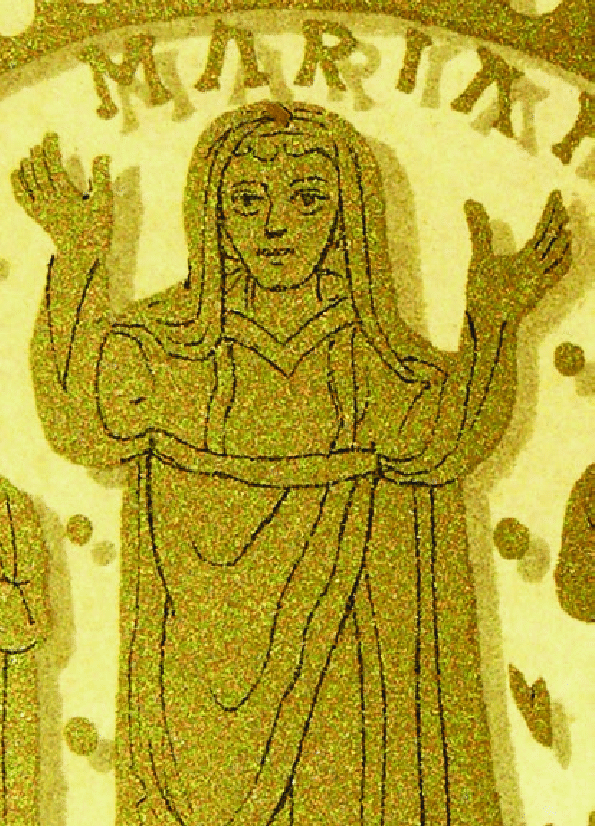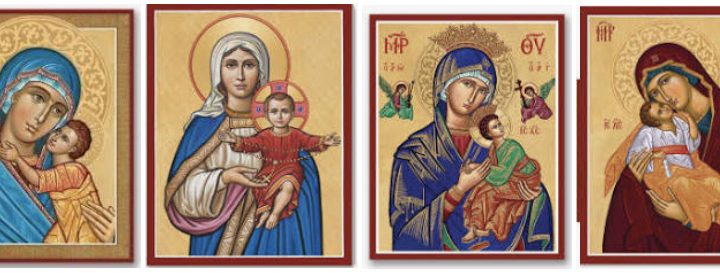This is the final article in a four-part Advent series.
One of my children asked me the other day, “What’s the big deal about access to birth control?” My answer was, “If your mother had not had access to birth control, you would have many more brothers and sisters and I never would have been able to work, go to seminary or follow my calling in ministry.”
Following that calling with three children is hard enough.
We would be prudent to realize that women with less power and fewer resources cannot always depend on men to provide the needed barrier of a condom to prevent pregnancy. Birth control gives women power over their own bodies and decisions in a way condoms never will.

Julia Goldie Day
I always will be cognizant that if I lived even 100 years ago, I would have died in childbirth without the modern tools of medicine that still fail many women of color. My state, Tennessee, has one of the highest rates of maternal death due to the neglect of women who are often ignored or even punished for bearing children while poor or Black or both.
“The word and works of God is quite clear, that women were made to be either wives or prostitutes,” said Martin Luther. Likewise, from Saint Augustine, “Contraception makes a prostitute out of the wife and an adulterer out of the husband.”
The burden of human sexuality was and still is solely placed on those of us who are female.
It’s hard to shake the leadership of the church fathers which has deeply influenced the way we think about women as Christians. Rachel Held Evans wrote in her book A Year of Biblical Womanhood, “Perhaps someday, all women, no matter their marital status or procreative prowess, will be equally honored by the church.”
“It’s hard to shake the leadership of the church fathers which has deeply influenced the way we think about women as Christians.”
Mary was neither a wife nor a prostitute. She didn’t have access to birth control, but she did have control over the choice to bear the “Son of the Most High.” She believed, she consented, and she obediently joined in God’s divine work in the world.
We are told in the Gospel of Luke, for perhaps the first time in Scripture, how a woman felt. Mary was deeply troubled — it’s not hard to image why. Previously we have been told what women did but not the feelings that motivated those actions.
“Mary is being presented to us in a new way — as a fully formed person in her own right rather than simply an object that affects male characters in some way,” according to Joanna Harader. Her humanity is of the upmost importance in her ability to consent to her role. Agency is freely given to a woman by God.
This agency does not preclude suffering.
Mary experienced the trauma of birth because she was human. Mary the mother, the one who gives birth to God incarnate, literally “God-bearer,” bears her son like all of us enfleshed women, not without pain as some would suggest.
Even in the midst of pain and risk, especially in pain and risk, something holy is born.
Blessed Mary did not reject the gift of God. Mary did not hide her pregnancy. Mary did not keep silent about the God she serves. Mary did not hide her gifts for leadership or reject her God-given tasks. She may have been troubled, and rightly so, but despite her fear, she leaned into the possibility of the liberation and wholeness that is at the heart of God. She partnered with God in co-creating, and we are invited to do the same.
“Mary did not hide her gifts for leadership or reject her God-given tasks.”
Many scholars believe Luke is referring to Mary’s unique blessedness in Luke 11:27-28: “While he was saying this, a woman in the crowd raised her voice and said to him, ‘Blessed is the womb that bore you and the breasts that nursed you!’ But he (Jesus) said, ‘Blessed rather are those who hear the word of God and obey it!’”
Mary is blessed beyond a physical bearing of Jesus and is called blessed by her adult son for her ability to listen and then obey God. God manifests in Mary. This act of love from this servant of God, hearing the word of God and obeying it, is not “skin deep” but a deep heart interaction with the Holy Spirit that results in artful living, co-creating.
 Austen Hartke says in Transforming: The Bible and the Lives of Transgender Christians: “To bless others is an act of giving power and potentiality to them; it is another dimension of the divine power-sharing activity. … Blessing is understood to be integral to the creative process itself; it enables creatures to participate in the ongoingness of creation. … Creation has to do not just with beginnings of things but with a continuing process of becoming.”
Austen Hartke says in Transforming: The Bible and the Lives of Transgender Christians: “To bless others is an act of giving power and potentiality to them; it is another dimension of the divine power-sharing activity. … Blessing is understood to be integral to the creative process itself; it enables creatures to participate in the ongoingness of creation. … Creation has to do not just with beginnings of things but with a continuing process of becoming.”
Not simply following the rules but living empowered faithfully, co-creating as an act of revolutionary love. Blessed Mary is our example.
As Mary had a special relationship with God, Jesus has a special relationship with his mother and with all women, a relationship other men do not possess. If we understand the virgin birth from a theological viewpoint, then we can see Jesus is “born only of a woman” without a man, says Dorothy A. Lee in her book The Ministry of Women in the New Testament.
“Jesus is bound in a unique and compelling way to his mother from his conception to his death and resurrection,” she says, which raises the status of women and confirms the inherit worth and dignity of all women, mothers or not — “their gender confirmed in Jesus’s female-generated humanity.”
Jesus is unique indeed, as is his mother, Mary. She is a literal part of the incarnation, she is with Jesus at times in the Gospels, she is at the Cross, and she is even at the day of Pentecost when the sons and daughters of the early church prophesy with the Spirit upon them in Acts chapters 1 and 2.
“Mary’s leadership in the early church may have been erased.”
Mary’s leadership in the early church may have been erased. Mary’s arms are raised in blessing and prayer leadership in early artifacts that portray only her. At times, Mary is portrayed below Jesus surrounded by the disciples with her “arms raised to lead in prayer and bless the assembled throng” wearing priestly garb, Lee writes. It’s much later in artistic expression that we see the typical Mary on her knees in submission.
If we look a little deeper, it’s not hard to imagine this heroine as a leader in the early church as she is leader to us as well. Jesus formed a new kind of family, a kin’dom, one in which blessed is the one who listens and obeys.
Julian of Norwich (1343 to after 1416), a church mother and mystic, wrote of her visions of the sufferings of Christ and his mother in Revelations of Divine Love, which has the distinction of being the earliest surviving book written in English by a woman. “Here (Julian) learned that God is not an angry judge; but, like a mother, has joyfully given us birth through the pain of the Cross.”
Julian herself wrote: “As truly as God is our Father, so truly God is our Mother; and that shewed he in all.”
Suffering on the Cross, Jesus knows the pain of women. The pain of birth is often seen in the release of water and blood from the puncturing of Jesus’ side by the soldier. Jesus is our mother in his suffering and redemptive love.
We are, in fact, named adoptive children. Jesus is our kin, our family. We can discard the hierarchical language of kingdom. This kin’dom is not of this world, and in this kin’dom we all are one in Christ Jesus, for he has called us friends.
Mary, full of grace, favored among women, is to be celebrated in our worship and devotion to God for she is a lead singer in the song of the gospel, the gospel that is revealed in Jesus Christ. God’s faithfulness to Blessed Mary and to women cannot be ignored in the gospel story and in kin’dom living.
This Advent and Christmas season, how will we fully consent to God’s calling — to honor women? How will we live as God has truly created us to live, in harmony and love for God and neighbor? Blessed Mary shows us the way. May we have ears to listen to this good news.
A few practical suggestions to consider:
- Examine how you will vote for government candidates that support removing rights from women. If our values truly influence how we chose to vote, we must consider the cost for women with our eyes opened by our faith and devotion. This is not a partisan plea but a reminder of our Baptist belief of separation of church and state. Each of us must vote our conscience and each of us must continue to work to keep religion (ours or anyone else’s religion) from determining the rights of others. Our Baptist forefathers and foremothers came here so they might worship freely without persecution and risk of death. We need to take our Baptist history and tradition to heart and promote the rights of everyone, not just our own, or we are creating the same kind of environment our ancestors fled.
- Examine the division of labor in your home. Do women carry all the responsibilities of the home and children? Or do men meal plan, shop for groceries and cook meals for their families? Clean toilets? Keep the family calendar? Keep in mind that emotional labor is work too. Read Eve Rodsky’s book Fair Play: Share the Mental Load, Rebalance Your Relationship to learn more about this balance.
- Examine the division of labor in your church. Do women carry all the responsibility of children and preschool ministries in your church? Do men serve in the church nursery or teach children’s Sunday school classes? I always had the most difficulty finding male chaperones for children and youth trips (male ministers don’t tend to have this problem because they need female chaperones). Do men take a week off to serve in your youth or children’s ministries? How do we actively model all roles are for men and women in our individual churches?
- Examine how you will support women-owned businesses this Advent and Christmas season. The way we spend our money can be impactful and communicates our values. Find creative women, for they are all around you, and buy a painting, a quilt, a book or a music lesson. We are all around. You just must be willing to notice the good and faithful work of women. And remember that women deserve to be paid for their work just like men.
- Make a financial gift to Baptist Women in Ministry for their good and hard work of promoting the leadership of clergywomen in our faith communities. Go one step further and become a monthly giver. BWIM works in concert with Baptist News Global to promote the writing and voices of women.
Julia Goldie Day is an ordained minister within the Cooperative Baptist Fellowship and lives in Memphis, Tenn. She is a painter and proud mother to Jasper, Barak and Jillian. Learn more at her website, find her painting for purchase here or follow me on socials @JuliaGoldieDay.
Related articles:
Mary, Our Mother (for Baptists): There’s something about Mary | Opinion by Julia Goldie Day
Mary, Our Mother (for Baptists): Mary, did you know? | Opinion by Julia Goldie Day
Mary, Our Mother (for Baptists): I don’t think that word means what you think it means | Opinion by Julia Goldie Day


